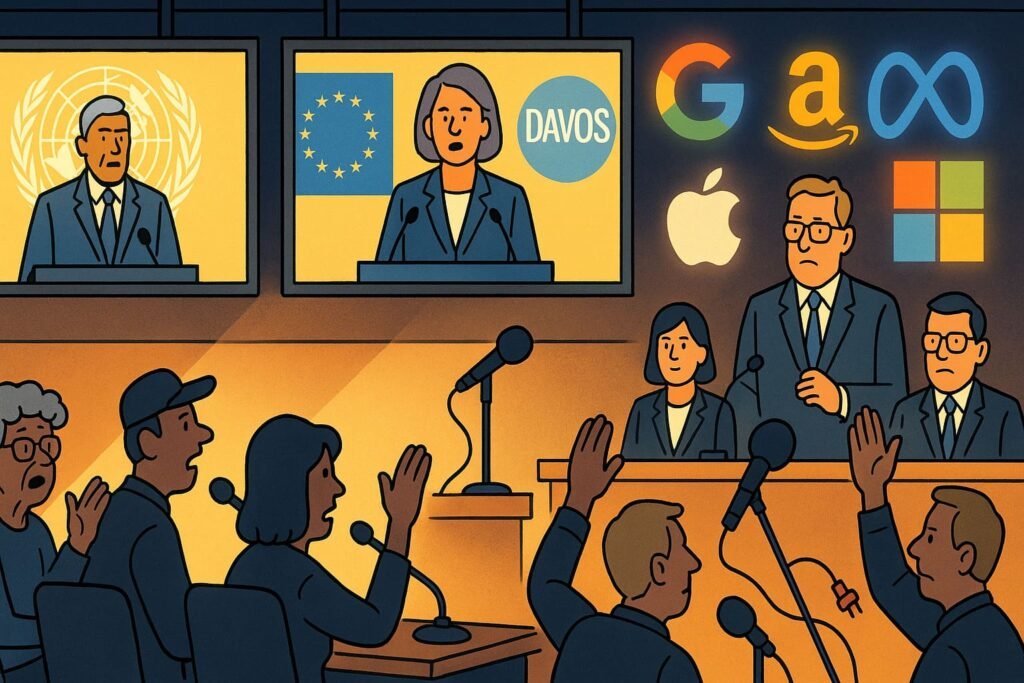Global vs Local Politics – Who Really Runs the Show?
Democracy used to feel local. You voted for people in your community, they made decisions, and you lived with the results. Today, politics looks very different. Decisions that shape daily life — from climate targets to speech laws — are often made not in local parliaments but in global forums: Brussels, Davos, the UN, or corporate boardrooms.
The tension between global vs local politics is one of the great contradictions of our time. Local voices are loud on paper, but global forces usually win in practice.
Table of contents
The Rise of Global Governance
International organisations claim to solve problems that no nation can tackle alone: climate change, migration, pandemics, trade. On the surface, that sounds reasonable. In practice, it means unelected officials, corporate lobbyists, and NGOs have enormous influence over policies that affect millions.
National governments increasingly act like middle managers, implementing frameworks designed elsewhere.
Local Politics: Power in Name Only
Town halls, parliaments, and national debates still exist, but their room to manoeuvre is shrinking. Local politicians may argue about schools or roads, but big-ticket policies — carbon taxes, financial regulations, online speech rules — often trace back to global agreements.
Citizens think they’re choosing policies when they vote. In reality, they’re choosing who will enforce decisions already made at a higher level.
The Corporate Layer
Adding to the confusion, multinational corporations act like political actors in their own right. Big Tech sets global speech rules. Banks dictate environmental policy through ESG. Food and pharma giants shape health guidelines. These corporations aren’t elected, but they wield more influence than many governments.
Why Global Beats Local
Global politics has the advantage of scale. A local government can resist for a while, but financial markets, trade treaties, and multinational lobbies usually get their way. Resistance is costly. Compliance is rewarded.
The result is a political system where local democracy feels hollow — more performance than power.
Who Benefits?
- Global institutions – more influence without accountability.
- Corporations – uniform rules that protect their interests.
- Politicians – cover for unpopular policies (“Brussels made us do it”).
The losers are ordinary citizens, who discover their “local vote” doesn’t carry much weight in the bigger game.
Conclusion
The clash between global and local politics is the story of power shifting upwards. Local politics gives the appearance of democracy. Global politics provides the reality of control.
The next time a local politician tells you their “hands are tied,” they’re probably right — and it’s worth asking: tied by whom?
FAQ Section
What is global vs local politics?
It’s the tension between decisions made by international institutions and the democratic processes of local or national governments.
Why does global politics dominate?
Because financial markets, treaties, and corporations enforce compliance, leaving local governments with little room to manoeuvre.
What role do corporations play?
Multinationals act like political actors, shaping policy on speech, environment, and trade without being elected.
Who benefits from global politics?
Global institutions, corporations, and politicians who gain cover — not the local citizens meant to be represented.



